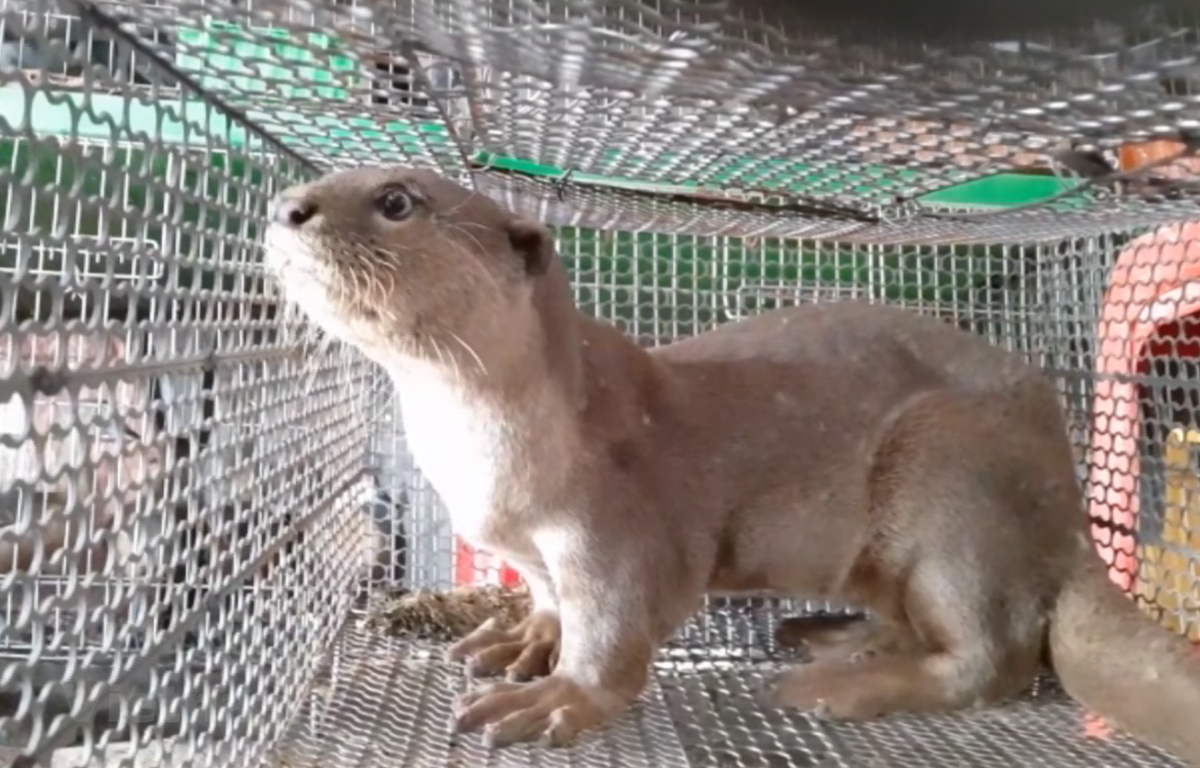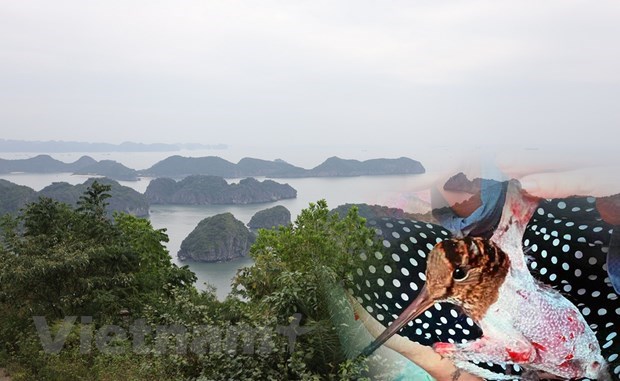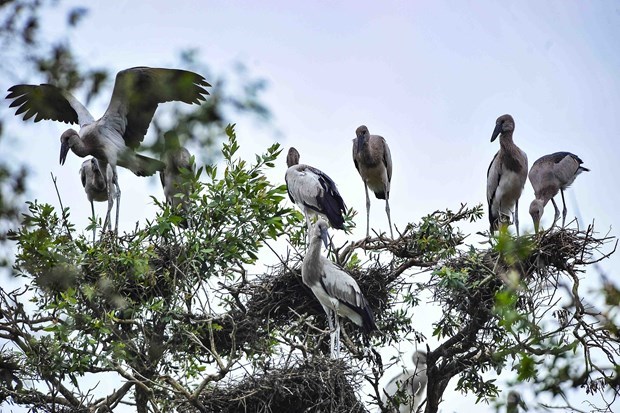Tougher actions taken to protect wildlife

Hanoi (VNA) – Since Vietnam, a country that has some of the world’s most diverse wildlife, is suffering biodiversity loss due to illegal wildlife trade, the country has made consistent efforts to strengthen law enforcement to protect wildlife and biodiversity.
Statistics from the Education for Nature – Vietnam (ENV) highlight how dire the situation is for many animals in Vietnam.
Rhinos are extinct in the country; there are no more than five tigers left; less than 100 elephants live in the wild; and 16 out of 25 primate species are in critical condition. Meanwhile, hundreds of bears live in captivity and many other rare and endangered wildlife species are threatened by the illegal wildlife trade.
According to the International Union for Conservation of Nature (IUCN), before the 1980s Vietnam’s marine turtle population was in rude health, with dozens of thousands turtles laying eggs every year.
Now, the number has declined dramatically, as only 200-300 turtles bear eggs per year on Con Dao Island, while the provinces of Quang Ninh, Quang Tri, Binh Dinh and Ninh Thuan record only 10-20 turtles laying eggs year each.
The ENV said that among the five species of sea turtles in the country, the Hawksbill sea turtle population has severely decreased due to humans hunting them for their shells, having fallen 80 percent in the last century.
According to the Biodiversity Conservation Agency, Vietnam has been tougher on violators of wildlife and biodiversity conservation rules.
Wildlife-related crimes are considered serious, with convicted criminals now facing higher penalties and longer prison sentences in accordance with amendments to the 2015 Penal Code adopted by the National Assembly in 2017. Violators may face up to 15 years in prison and fines of up to 15 billion VND (650,000 USD), with penalties rising in line with the quantity of wildlife trafficked.
In July last year, Prime Minister Nguyen Xuan Phuc issued Directive No 29 on urgent measures to restrict wildlife trade and consumption, banning the importation of live wild animals and wildlife products, strictly eliminating wildlife markets, and prohibiting the hunting, transporting, slaughtering, selling, buying, storing, consuming, or advertising of wildlife, including online sales.
Vietnam is among the signatories to the Convention on Biological Diversity, the Convention on International Trade in Endangered Species of Wild Fauna and Flora, the 1989 Convention on Wetlands of International Importance, and the UN Convention to Combat Desertification. The country has also stepped up bilateral and multilateral cooperation on wildlife conservation, for example signing an agreement with South Africa in 2012 to put an end to the illegal trade of rhinoceros’ horn.
Between 2015 and 2020, about 73 percent of wildlife trafficking cases were brought to the court. The 2015 Penal Code resulted in an increase in average prison sentences for wildlife crime in subsequent years, to 5.29 years in 2018 and 4.49 years in the first half of 2020 compared to just 1.25 years in 2017.
Deputy Director of the Biodiversity Conservation Agency Nguyen Xuan Dung said Vietnam has developed and enforced a number of programmes and action plans on the urgent conservation of endangered species, such as tigers, elephants, primates, birds, and turtles.
 Wild birds are rarely seen on Cat Ba island now (Photo: VietnamPlus)
Wild birds are rarely seen on Cat Ba island now (Photo: VietnamPlus)Projects monitoring wildlife populations have been carried out in Quang Binh province’s Phong Nha - Ke Bang National Park, Hai Phong city’s Cat Ba National Park, Ninh Binh province’s Van Long Nature Reserve, Tuyen Quang province’s Na Hang and Cham Chu Nature Reserves, Nam Dinh province’s Xuan Thuy National Park, and others.
Vietnam is now home to 173 wildlife conservation zones, comprising 33 national parks, 66 nature reserves, and 18 species and habitat reserves. They cover a total area of more than 2.5 million ha, which is expected to rise to over 3 million ha by 2030./.
 Tram Chim National Park in the Mekong Delta province of Dong Thap is the world’s 2,000th Ramsar site. (Photo: VNA)
Tram Chim National Park in the Mekong Delta province of Dong Thap is the world’s 2,000th Ramsar site. (Photo: VNA)|
Box: On 20 December 2013, at its 68th session, the United Nations General Assembly (UNGA) proclaimed 3 March – the day of signature of the Convention on International Trade in Endangered Species of Wild Fauna and Flora (CITES) in 1973 – as UN World Wildlife Day to celebrate and raise awareness about the world’s wild animals and plants. The UNGA resolution also designated the CITES Secretariat as the facilitatorfor the global observance of this special day for wildlife on the UN calendar. World Wildlife Day has now become the most important global annual event dedicated to wildlife. |













